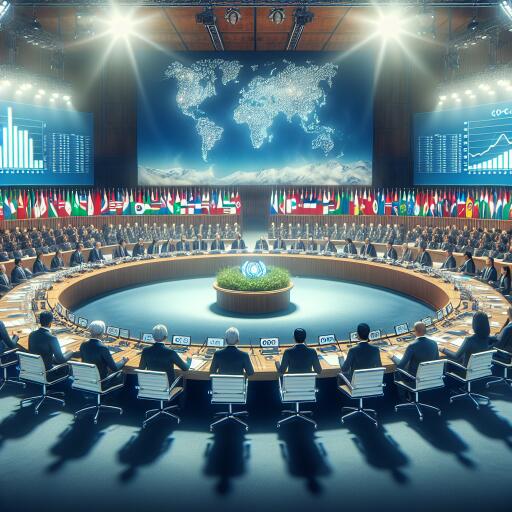
China and US Join Forces for Global Climate Action at COP29
In an unprecedented move signaling a unified effort against global climate change, China and the United States have announced their plan to co-host a pivotal summit dedicated to the discussion of non-carbon dioxide (non-CO2) greenhouse gases. This summit will be part of the COP29, this year’s United Nations climate change conference, aimed at fostering international cooperation and driving forward collective action among nearly 200 participating countries.
The collaboration was unveiled following a productive three-day session in Beijing, where representatives from both nations, under the banner of the China-US Working Group on Enhancing Climate Action in the 2020s, convened to deliberate on measures to combat the climate crisis. This meeting, a testament to the ongoing dialogue between the world’s two largest economies on climate issues, was co-chaired by China’s Special Envoy for Climate Change, Liu Zhenmin, and John Podesta, the US Senior Advisor to the President for International Climate Policy.
At the heart of the discussions were strategies aimed at fulfilling the commitments under the 2030 nationally determined contributions (NDCs) and gearing up for the subsequent 2035 NDCs. NDCs represent each country’s plan to reduce its greenhouse gas emissions and adapt to the impacts of climate change, in line with the 2015 Paris Agreement, which mandates an update every five years to ensure escalating ambition in addressing climate issues.
Throughout the meeting, both nations engaged in exchanges on various core themes, including energy transition, methane emission control, the promotion of a circular economy, and enhancing resource efficiency. Moreover, there was a focus on fostering low-carbon and sustainable development at the provincial, state, and city levels, showcasing a comprehensive approach towards mitigating climate change.
The cooperation extended beyond high-level discussions, with Liu and Podesta also participating in forums aimed at promoting circular economy practices and fostering sub-national climate action, which underscore the cross-cutting nature of climate action, from global agreements to local implementation.
Underscoring the significance of the upcoming COP29 summit, both nations expressed their intention to not only lead the summit on methane and other non-CO2 greenhouse gases but also to encourage active participation from other global players. This reflects a shared ambition to catalyze broader international collaboration in addressing the full spectrum of greenhouse gas emissions.
Reflecting on their ongoing partnership, China and the US reiterated their commitment to combating deforestation and enforcing laws against illegal timber trade, further emphasizing their dedication to global forest conservation and sustainable management. These efforts align with their broader objectives of supporting Azerbaijan in ensuring the COP29 United Nations climate conference yields successful outcomes, including global climate finance agreements and advancements in implementing Article 6 of the Paris Agreement.
The New Collective Quantified Goal, crucial for setting post-2025 financial targets to aid developing countries in their climate initiatives, along with the implementation of Article 6, which facilitates voluntary cooperation between countries to meet their emission reduction targets, stand at the forefront of the summit’s agenda.
This collaboration heralds a new phase in China-US climate relations, following a consensus reached during COP26 to establish a working group aimed at fighting the climate crisis. The COP29 summit, scheduled to take place from November 11 to 22 in Baku, Azerbaijan, represents a crucial opportunity for these two global powers to lead by example, demonstrating that despite geopolitical differences, common ground can be found in the universal fight against climate change.
As the world gears up for COP29, the eyes of the international community will be on China and the US, watching closely as they navigate the complex dynamics of global climate diplomacy. Their collaboration on the non-CO2 greenhouse gas summit is not just a testament to their commitment to the Paris Agreement but also a beacon of hope for multilateralism and collective action in tackling one of the most pressing challenges of our time.





Leave a Reply